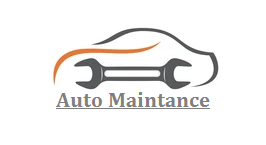Auto wreckers play a vital role in the automotive industry, serving as a bridge between end-of-life vehicles and the recycling of their components. As the number of vehicles on the road continues to rise, so too does the need for responsible disposal and recycling solutions. This article delves into the functions of auto wreckers, the environmental benefits they provide, the economic implications of their operations, and the future of the auto wrecking industry in an evolving automotive landscape.
The Role of Auto Wreckers
Auto wreckers, also known as salvage yards or junkyards, specialize in dismantling vehicles that are no longer operable or economically repairable. Their primary function is to recover usable parts from these vehicles, which can then be resold to consumers or businesses. This process not only extends the life cycle of automotive components but also provides a cost-effective solution for those seeking affordable replacement parts.
The dismantling process begins with the careful evaluation of each vehicle. Auto wreckers assess the condition of various components, including engines, transmissions, body panels, and electronic systems. Parts that meet quality standards are removed and cataloged for resale, while non-reusable materials are sorted for recycling or disposal. This meticulous approach ensures that valuable resources are not wasted and that hazardous materials are handled appropriately.
In addition to salvaging parts, auto wreckers often provide services such as vehicle towing and removal. Many individuals and businesses rely on these services to dispose of unwanted vehicles in a safe and environmentally friendly manner. By offering a streamlined process for vehicle disposal, auto wreckers contribute to reducing the number of abandoned cars on the road and in landfills.
Environmental Benefits
The environmental impact of auto wreckers is significant, particularly in an era where sustainability is paramount. By recycling automotive parts and materials, these businesses help reduce waste and conserve natural resources. For instance, metals such as steel and aluminum can be extracted from salvaged vehicles and repurposed for new manufacturing processes. This not only minimizes the need for raw material extraction but also reduces energy consumption associated with producing new metals.
Furthermore, auto wreckers play a crucial role in preventing hazardous materials from contaminating the environment. Vehicles contain various fluids, such as oil, coolant, and brake fluid, which can be harmful if released into the soil or water supply. Reputable auto wreckers are equipped to safely drain and dispose of these substances in compliance with environmental regulations. By doing so, they mitigate the risk of pollution and contribute to a cleaner ecosystem.
The recycling efforts of auto wreckers extend beyond metals and fluids; many components can be refurbished or repurposed. For example, tires can be retreaded for further use, while batteries can be recycled to recover valuable materials like lead and acid. These practices not only reduce landfill waste but also promote a circular economy within the automotive sector.
Economic Implications
The auto wrecking industry has substantial economic implications at both local and national levels. By providing affordable parts to consumers and businesses, auto wreckers help keep vehicle maintenance costs manageable. This is particularly important for individuals who may not have the financial means to purchase brand-new parts. The availability of used parts fosters competition within the automotive market, ultimately benefiting consumers through lower prices.
Moreover, auto wreckers contribute to job creation within their communities. The dismantling process requires skilled labor for evaluating parts, managing inventory, and operating machinery. Additionally, supporting industries such as transportation and logistics benefit from the operations of auto wreckers. As these businesses grow, they create opportunities for employment across various sectors.
The economic impact of auto wreckers is also evident in their role in vehicle recycling programs. Many municipalities partner with auto wreckers to facilitate the proper disposal of end-of-life vehicles. These collaborations not only enhance local recycling efforts but also generate revenue through scrap metal sales and other recyclable materials.
The Future of Auto Wrecking
As the automotive industry evolves with advancements in technology and shifts toward electric vehicles (EVs), the role of auto wreckers Hobart is likely to change as well. The increasing prevalence of EVs presents new challenges and opportunities for salvage operations. Electric vehicles contain unique components, such as lithium-ion batteries, which require specialized handling and recycling processes.
To adapt to these changes, auto wreckers must invest in training and equipment that enable them to safely dismantle and recycle EVs. This may involve partnerships with battery recycling companies or investments in technology that can efficiently extract valuable materials from these vehicles. As the market for electric vehicles expands, so too will the demand for responsible recycling solutions.
Additionally, the rise of digital platforms has transformed how consumers access used auto parts. Online marketplaces have made it easier for individuals to find specific components from salvage yards across the country. To remain competitive, auto wreckers must embrace technology by establishing an online presence and utilizing inventory management systems that streamline operations.
In conclusion
auto wreckers serve an essential function within the automotive ecosystem by facilitating vehicle dismantling, promoting environmental sustainability, contributing to local economies, and adapting to industry changes. As society increasingly prioritizes responsible resource management and sustainability, the role of auto wreckers will continue to evolve. By embracing innovation and maintaining a commitment to environmental stewardship, these businesses will remain integral to the future of automotive recycling and waste management. Need scrap car buyers in Adelaide? Melbourne cash forcars.com.au will remove your car and pay you the best price, no matter its condition

